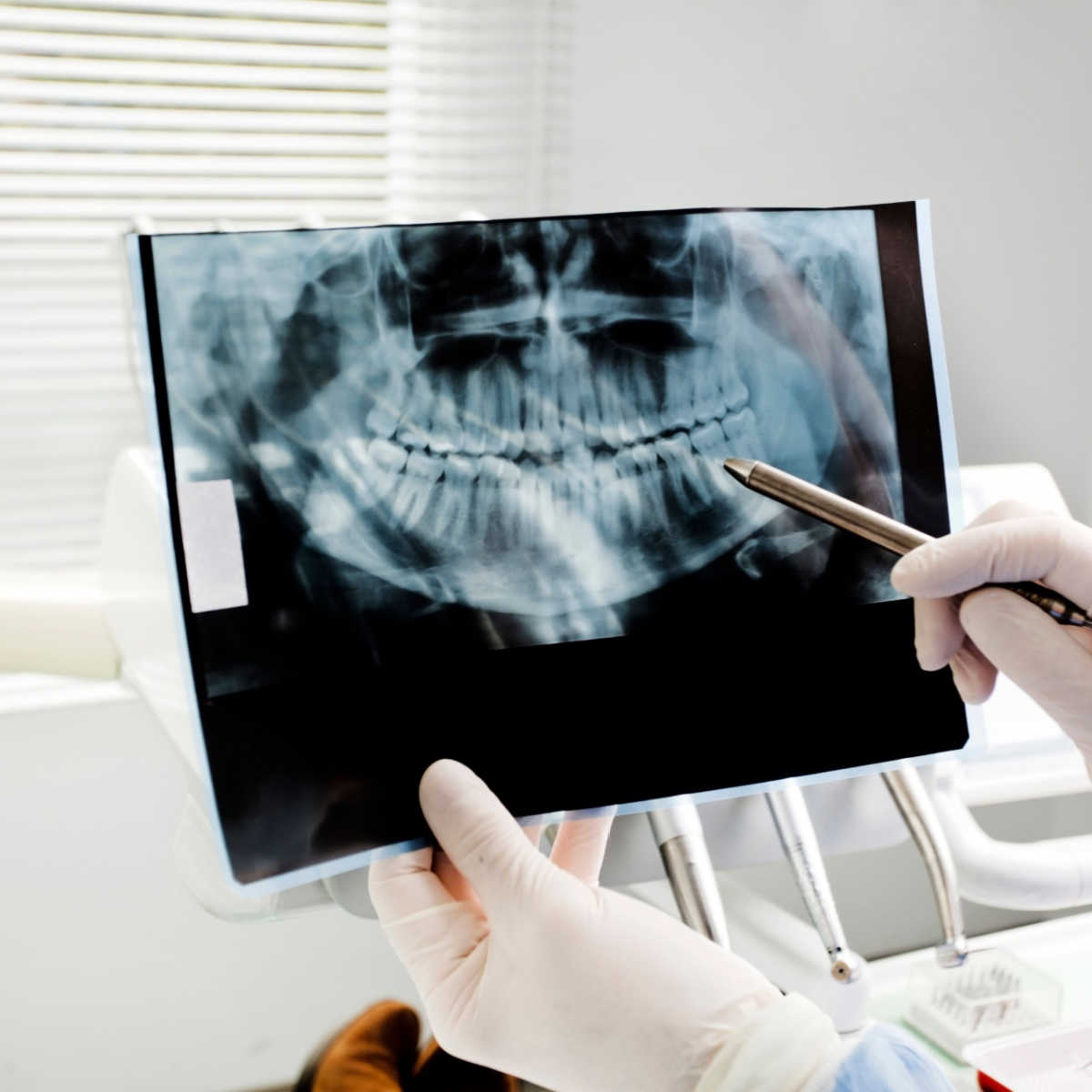Find the Perfect Tooth Replacement for You
Are you suffering from lost or damaged teeth? Do you want a solution other than dentures so you can eat and speak normally? Dental implants may be what you’re looking for! With various implant treatment options, including mini dental implants, patients can get a new smile that meets their goals.
To learn more about the treatment options offered by our West Sayville dentist, contact us today at 631-563-1583.

What Are Mini Dental Implants?
Mini dental implants are smaller versions of traditional dental implants. They typically range in diameter from 2 mm to 3.5 mm, while traditional dental implants range from 3.5mm to 6mm in diameter.
These implants are designed to be less invasive and require less bone density than standard dental implants. They’re often used in cases where patients have insufficient bone mass for traditional implants or where the cost and time associated with conventional implants are prohibitive.
Mini dental implants are inserted into the jawbone through a minimally invasive procedure, which usually requires local anesthesia. Once in place, they provide a stable foundation for the attachment of dental prostheses, improving the patient’s ability to eat, speak, and smile comfortably.
Benefits of Mini Dental Implants
The mini dental implant treatment offers various benefits over traditional dental implants, including:
- Minimally Invasive Procedure: The mini dental implant procedure is often less invasive compared to standard implants. This means less trauma to the surrounding tissues and a quicker recovery time.
- Less Bone Required: Mini dental implants require less bone density for successful placement. This makes them a viable option for patients who have experienced bone loss in their jaw due to factors like periodontal disease or long-term denture use.
- Faster Healing Time: Because mini dental implants are smaller and require less extensive surgery, the healing time is often shorter than that of traditional implants. Patients can typically resume normal activities sooner after the procedure.
- Cost-Effective: Mini implants are often more cost-effective than traditional dental implants. This can make them a more accessible option for patients who may be on a tighter budget.
- Immediate Functionality: In many cases, mini dental implants can be loaded with a dental prosthesis immediately after placement. This means patients can enjoy improved chewing and speaking abilities right away, without the need for a waiting period.
- Stabilization of Dentures: Mini dental implants can be used to stabilize and secure removable dentures, preventing them from slipping or shifting while eating or speaking. This enhances comfort and confidence for denture wearers.
- Versatility: Mini dental implants can be used in various dental restoration procedures, including single-tooth replacements, bridges, and overdentures. This versatility makes them a valuable option for patients with different dental needs.
Mini Dental Implant Cons
While mini implants can be an excellent tooth replacement option, there are a few drawbacks patients should be aware of:
- Limited support: Since mini implants are smaller in diameter, they may not provide as much support for larger dental appliances. They’re often recommended for a single-tooth replacement.
- Long-term durability: While made of strong, durable materials, mini implants don’t have the same long-term durability as traditional implants.
- Higher failure rate: Some studies have shown that the mini dental implant failure rate is higher than other implant treatments. However, the failure rate varies with the type of implant, the surgical technique, and post-operative maintenance.

The Mini Dental Implant Process
The mini dental implant procedure consists of the following steps:
- Consultation: The first step is to schedule a consultation with our qualified dentist or oral surgeon who specializes in dental implants. During this appointment, we’ll assess your oral health, discuss your medical history, and determine if mini dental implants are the right option for you.
- Treatment Planning: If mini dental implants are deemed suitable for your case, the dentist will develop a customized treatment plan tailored to your specific needs. This plan will outline the number of implants needed, the location of the implants, and any additional procedures that may be required, such as bone grafting or tooth extraction.
- Implant Placement: On the day of the procedure, a local anesthetic will be administered to numb the area where the implants will be placed. Using specialized instruments, the dentist will place the mini dental implants directly into the jawbone. Mini implants are smaller in diameter compared to traditional implants, which means they require less invasive surgery and typically have a quicker healing time.
- Healing Period: After the implants are placed, there will be a healing period during which the implants will fuse with the surrounding bone in a process called osseointegration. This typically takes several weeks, during which time temporary restorations may be worn to protect the implants and allow for normal chewing and speaking.
- Attachment of Prosthetic: Once the implants have fully integrated with the bone, the dentist will attach the prosthetic teeth or dental appliance to the implants. This could be a crown, bridge, or denture, depending on the number of missing teeth and your treatment plan. The prosthetic is custom-made to match the color, size, and shape of your natural teeth for a seamless and aesthetically pleasing result.
- Follow-Up Care: After the prosthetic is attached, your dentist will provide instructions on how to care for your new implants and maintain good oral hygiene. Regular follow-up appointments will also be scheduled to monitor the implants and ensure they remain stable and healthy.
Do You Qualify for Mini Dental Implants?
To determine your candidacy for mini dental implants, contact our West Sayville dentist for a consultation. You may qualify if:
- You have low bone density: Mini dental implants have a smaller diameter compared to traditional implants, meaning they don’t require as much bone density for support. They’re an ideal option for patients who have experienced bone loss because of periodontal disease or other health problems.
- You have lost one or more teeth: Mini dental implants can support a single dental crown or bridge or even stabilize a removable dental appliance such as a denture.
- You have removable dental appliances: Mini dental implants can be used to stabilize a removable dental appliance, such as a denture. They provide a more secure fit and prevent the appliance from moving around in the mouth.
- You prefer a less invasive option: The procedure is typically less invasive than traditional dental implant placement. This can be beneficial for patients who prefer a less invasive option or have medical conditions that make traditional implant placement more complicated.
Cost of Mini Dental Implants
Mini dental implants are generally less expensive than traditional dental implants. The average cost of a mini dental implant can range from $500 to $1,500, while traditional implants can cost between $4,000 and $5,000 per tooth.
Other fees may also contribute to your overall mini implant cost, including:
- Consultation fees: Your initial consultation with our Long Island dentist to assess your suitability for mini dental implants may involve a fee.
- Diagnostic procedures: X-rays or CT scans may be necessary to evaluate your bone structure and plan the implant placement.
- Preparatory treatments: If you require procedures such as tooth extraction or bone grafting to prepare for mini implants, these will add to the overall cost.
- Prosthetic restoration: After the mini dental implants are placed, you’ll need to have a prosthetic tooth or dental appliance attached to them. The cost of the restoration will vary depending on the type of restoration needed and the materials used.
- Follow-up visits: Regular follow-up appointments with our dentist are essential to monitor the healing process and ensure the success of your mini dental implants. These visits may involve additional fees.

Frequently Asked Questions
While mini dental implants are smaller in size, they’re still made of strong, durable materials and can provide stable support for dental appliances. Your dentist will determine which option is best for you and answer any questions you may have.
With proper care and maintenance, mini dental implants can last a lifetime. However, the longevity of a mini implant is affected by factors such as your oral hygiene routine, bite alignment, and overall health.
Mini dental implants are typically used to support a single dental appliance, such as a crown or bridge. In some cases, multiple mini implants can support a larger dental appliance, such as a multiple-tooth bridge or full-arch denture.
